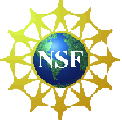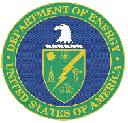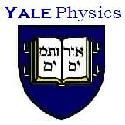
This workshop is the fourth in a sequence which started in 1995 at the University of Kentucky and continued in 1999 in Wuppertal and in 2003 at University of Edinburgh. The aim is to bring together applied mathematicians and theoretical physicists to stimulate the exchange of ideas between leading experts in the fields of lattice QCD and numerical analysis.
This workshop is organized by Dr. George T. Fleming of Yale University. Primary support is provided by the Physics at the Information Frontier (PIF) program of the National Science Foundation. Additional support is provided by Yale University and Thomas Jefferson National Accelerator Facility (JLab).
As the scale of computational resources available for lattice quantum field theory calculations steadily increases, the ambitions of practitioners has also kept pace in the desire for more realistic calculations of a widening variety of physical observables.
Many numerical methods discussed at the previous workshops have been integrated into current large scale computations generating ensembles of configurations with such a substantial reduction in overall cost per configuration that computational requirements are fairly balanced between configuration generation and measurement of observables.
The focus of this meeting will be equally divided between numerical methods relevant for the generation of lattice configurations and those relevant for the calculation and analysis of physical observables.
Topics
- QCD simulations in the chiral regime.
- Hybrid Monte Carlo, Molecular Dynamics and Multigrid Evolution.
- Iterative solutions of large sparse linear systems.
- Eigenvalue solvers.
- Unbiased estimation of matrix functions.
- Generalized eigenvalues and matrix polynomials.
- Exponential time series analysis (including Bayesian methods).
Introductory Lectures
- Introduction to QCD for Mathematicians.
- Introduction to Numerical Analysis for QCD Theorists.
- Review of Algorithms for Generating QCD Configurations.
- Eigenvalue solvers for large sparse matrices.
- Multigrid Methods for QCD.
- Introduction to exponential time series analysis.
Invited Speakers
- James Brannick (Penn State U.)
- Andreas Frommer (Wuppertal U.)
- David Keyes (Columbia U.)
- Ronald Morgan (Baylor U.)
- Victor Pereyra (Weidlinger Assoc., Mnt. View)
- Andreas Stathopoulos (William-Mary Coll.)
- Ira Livshits (Ball State)



